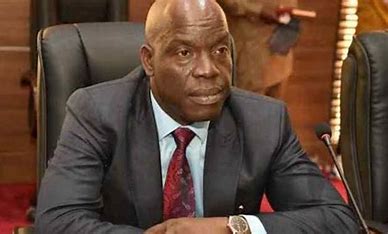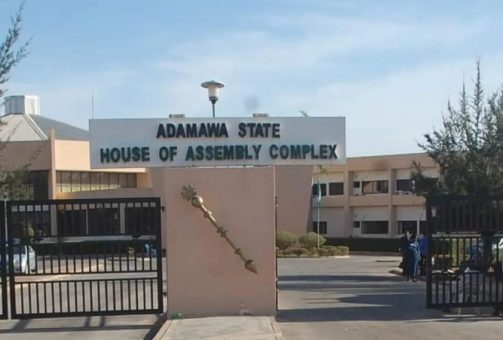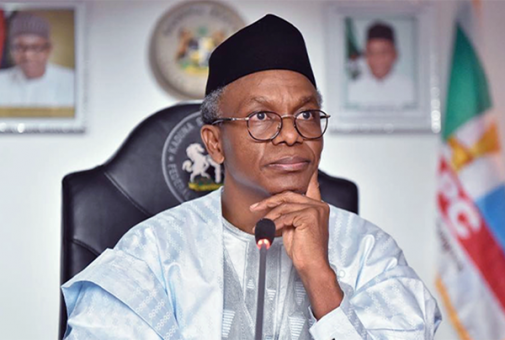
Nigeria could experience a gas supply shortfall of 3.1 billion cubic feet per day (bcf/d) within the next six years unless urgent measures are taken to upgrade gas infrastructure and boost investments in renewable energy.
At the NAEC Energy Conference 2024 in Lagos on Thursday, stakeholders estimated that Nigeria will require annual investments of $20 billion to address its infrastructure deficit.
Speaking at the event, Gbenga Komolafe, Chief Executive Officer of the Nigerian Upstream Petroleum Regulatory Commission (NUPRC), emphasized that the growth in gas demand currently exceeds supply, primarily due to increased domestic demand resulting from improved supply obligations. Represented by Paul Osu, Director of the Lagos Regional Office, Komolafe highlighted that gas demand is expected to grow at a compound annual growth rate of 16.6% per year, warning of a potential gas supply crisis with a shortfall of 3.1 bcf/day by 2030 in the ‘Base Case Demand and Supply’ scenario.
He noted that natural gas production is projected to rise from 8.0 bcf/day in 2020 to 12.2 bcf/day by 2030, driven by major projects like NLNG Train 7 & Train 8, the Nigeria/Morocco pipeline, and the Ajaokuta-Kaduna-Kano (AKK) Natural Gas Pipeline Project. However, he cautioned that this increase would not meet the projected high case demand scenario of 22.2 bcf/day by 2030.
He stated, “In just a decade, the demand landscape could change exponentially, especially if the challenges in the power sector are addressed. This underscores the opportunities in gas development within the Nigerian upstream sector and highlights the need to complement hydrocarbon developments with renewable energy.”
He emphasized that the NUPRC is committed to creating a favorable operating environment and urged investors to take advantage of the sustainability mandates in the Petroleum Industry Act (2021) along with the generous fiscal incentives available.
In a similar vein, Farouq Ahmed, Chief Executive Officer of the Nigeria Midstream and Downstream Petroleum Regulatory Authority (NMDPRA), represented by George Ene-Ita, Director of Public Affairs, emphasized that energy security is vital for Nigeria’s economic growth.
He pointed out that despite significant gas utilization deficits, Nigeria still flares approximately 2.5 billion cubic feet of gas daily.
“This wasted resource could generate enough electricity to meet our energy needs,” Ahmed stated. He added that the Decade of Gas initiative aims to eliminate this waste and ensure that by 2030, gas will contribute significantly to Nigeria’s energy mix, adding up to 5,000 megawatts (MW) to the national grid and reducing reliance on imported fuels.
He further noted, “As we invest in gas infrastructure, we must also diversify our energy sources to reduce dependence on any single fuel.”
He criticized the situation in which Nigeria has fewer than 3,000 LPG refilling plants and less than 50 CNG compression stations for a population of 200 million.
Ahmed emphasized the necessity of developing a robust gas sector, not only to meet domestic energy needs but also to position Nigeria as a reliable energy supplier for neighboring countries, enhancing regional energy security and reducing dependence on oil. He assured that the NMDPRA is dedicated to fostering transparency and creating a fair, investment-friendly environment. “Through the PIA and regulations, we are establishing a predictable framework for investors, ensuring fair pricing, and encouraging competition,” he stated.
Gabriel Ogbechie, Chairman of the conference and Group Managing Director of Rainoil Limited, noted that while Nigeria is blessed with abundant natural gas reserves, it faces a crossroads of opportunities and challenges. He remarked, “The decisions we make today regarding the role of gas in our energy landscape will shape our nation’s economic and environmental future.” He referenced a NEITI report indicating that Nigeria requires approximately $20 billion annually to bridge its gas infrastructure deficit, which includes pipelines and processing plants.
With the recent removal of the petrol subsidy, he highlighted the growing urgency to scale up gas alternatives, providing clean, affordable energy solutions and enhancing energy security while building a resilient energy system. Ogbechie noted that to increase power generation through gas-fired plants, significant investment in gas infrastructure is crucial, alongside addressing issues like pipeline vandalization.
He stressed the importance of attracting investment, particularly in green financing, to develop gas infrastructure and reinforced the need to strengthen policy frameworks that support the scaling of CNG and LPG initiatives for both transportation and domestic use.





